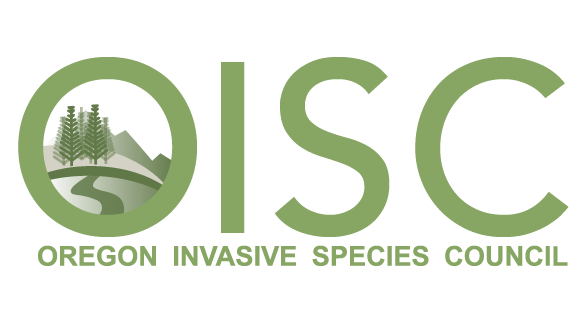Update from the OISC Chair
/Dear Oregon Invasive Species Network:
As the 2020 Chair of the Oregon Invasive Species Council (OISC), I am proud to serve this important coordinating group comprising state and public agencies, tribes, researchers, land managers, industry leaders, educators, and public members who lead the effort to protect Oregon from invasive species. Invasive species have been known to have devastating impacts on our health, agriculture, natural areas, water systems, and infrastructure. The OISC is Oregon’s only statewide program with a mission to coordinate among and support the many organizations, programs, and people that implement critical prevention, early detection, eradication, control, and education programs. Coordination, collaboration, and communication among the diverse network of invasive species management efforts in the state is essential to support our local communities, leverage limited budgets, maintain productive industries, and be good stewards of our natural resources.
Invasive species programs are facing unprecedented challenges in light of the COVID-19 crisis. In response to projections of budget shortfalls, the governor requested an 8.5% cut to the biennium budget for all state agencies. In response, the Oregon Department of Agriculture (ODA), which is the fiscal agent for the OISC, has proposed multiple cuts that impact a variety of programs relevant to invasive species management: the noxious weeds program, early detection pest trapping, and the OISC. The proposed cuts decrease the General Fund appropriation to the OISC for the biennium by 93% ($300,000 down to $20,000) and lottery funds by 32% ($155,907 to $105,907).
Unfortunately, these proposed cuts halted the OISC’s distribution of competitive grant funds for the inaugural Invasive Species Education & Outreach grants. In January of this year, we received 35 applications totaling more than $450,000 in funding requests demonstrating the need for more invasive species education and outreach efforts. In a letter sent to the OISC in May, ODA’s Deputy Director Lisa Hanson wrote, “We understand that the OISC members had selected potential grant recipients with a potential expenditure of approximately $100,000 of the General Fund appropriation. Those grants will be put on hold and no funds will be awarded at this time. ODA will hold onto those recommendations until statewide funding decisions become more clear.” …. “ODA will hold these funds and will not make any additional expenditures related to the OISC until we receive direction from the Governor’s Office and legislative leadership.”
Additionally, the proposed reduction includes cuts to funds that had been budgeted by the OISC for partially replenishing the balance of the invasives ‘emergency control account’, a reserve dedicated to supporting quick release of funds to applicants for rapid response eradication efforts; for supporting the Oregon Invasive Species online Hotline; and for maintaining coordination efforts to advance the OISC’s strategic initiatives. The late July special session meeting of the Oregon legislature may either seal these cuts or provide guidance for a less drastic decrease in funding. Given how the Council’s budget has been administered, the Council has not been in control of these proposed cuts, as you may have gleaned from the July 13 email addressed to the Council from the Council’s public member, Jas Adams, in which he shared his informative perspective on the proposed budget reduction.
Despite these budget cuts, the OISC remains committed to supporting Oregon’s invasive species network of organizations, programs and people tackling invasive species issues. In particular, we are seeking to understand the challenges, shortfalls, and needs of invasive species programs. We are exploring creative solutions from all partners to support education, outreach, and early detection projects and working to enhance communications about the impacts of invasive species. We recognize that invasive pest pressures are not going away. Coordination and communication are more important than ever. With limited capacity, we want to prioritize efforts and adapt to new challenges with you, and in our upcoming Council meetings will be working to identify specific opportunities for you. We welcome your input and collaboration.
Sincerely,
Catherine de Rivera, 2020 Chair of the Oregon Invasive Species Council
Portland State University, Center for Lakes & Reservoirs

